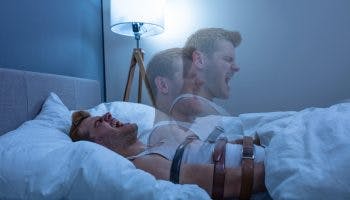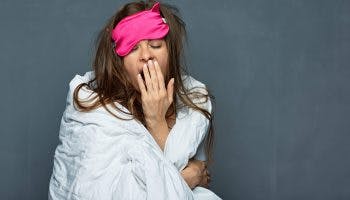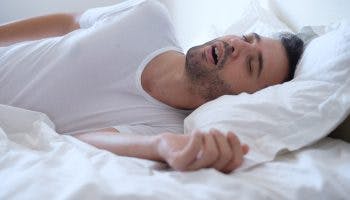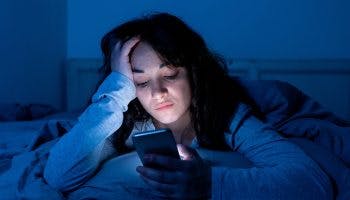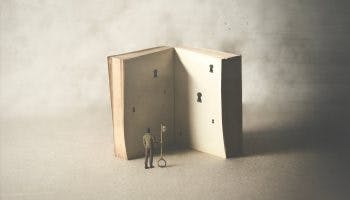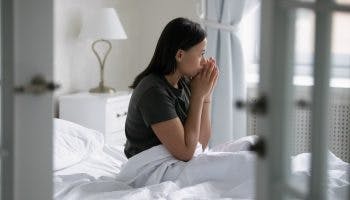Lack of Sleep Effects and Natural Remedies That Work
Published | 7 min read
Lack of sleep effects on your overall well-being and health can be prevented using the techniques outlined in this article.
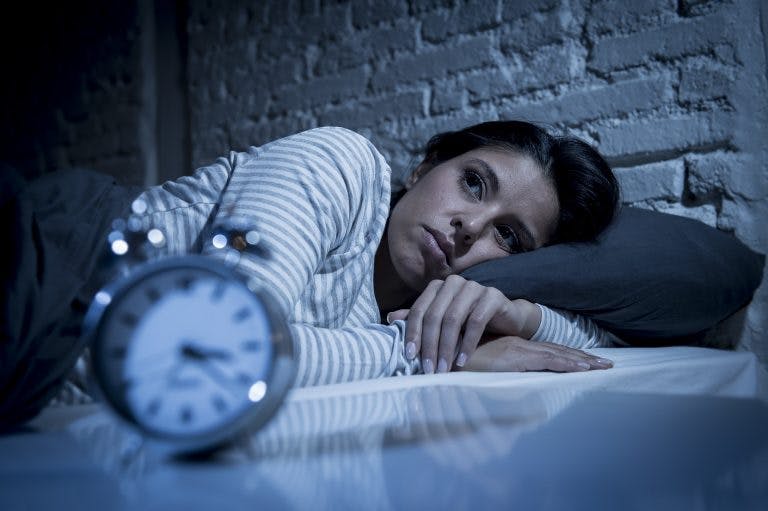
Lack of sleep effects on your overall health are quite astonishing. Experts agree that proper sleep is important for every aspect of your life.
There are few things that are more frustrating than beginning each day exhausted. If you have problems falling asleep and staying asleep, then Traditional Chinese Medicine (TCM) can help.
In this guide, we’ll explore the lack of sleep effects on your health. We’ll also discuss what you can do to get better sleep at night naturally.
Lack of Sleep Effects On General Health
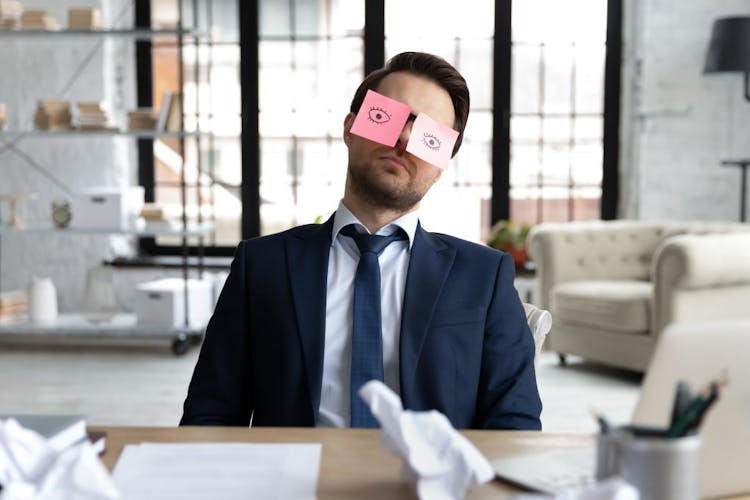
Studies show that a chronic lack of sleep not only impairs cognitive abilities and physical performance, but also increases the risk of heart disease and diabetes.
Additionally, sleep loss takes a toll on both mental health and general well-being. It may even be the reason why you are experiencing symptoms that seem unrelated to sleep, such as weight gain, food cravings, and even acne.
Here are some examples of lack of sleep effects on general health:
- Increases risk of obesity, coronary heart disease, and type 2 diabetes
- Shortens life span
- Impairs immunity and increases risk of illness
- Increases risk of clinical depression and general anxiety disorder in adults
- Reduces libido, fertility, and sexual health
- Negatively affects your appearance
- Causes cognitive impairment, such as memory problems and difficulty concentrating or learning
- May impair growth and development in children
- Disrupts hormone production (melatonin, insulin, cortisol, and hunger hormones)
Constantly getting too little or bad quality sleep can have serious consequences, Physician Tjai warns. When left untreated, it could develop into Chronic Fatigue Syndrome, a debilitating lack of energy that makes even simple tasks impossible.
Long term, a lack of sleep can also affect health and longevity, and lead to high blood pressure, heart disease, stroke, obesity and mental health issues.
In the case of women who are pregnant, it is believed that sleep deprivation could affect the development of the baby.
How Common is Sleep Loss?
A 2013 global survey by Regus, a provider of flexible workplaces, found that globally, one in three people face sleep issues.
This was based on interviews with more than 24,000 businessmen and women from over 90 countries. The study highlighted that flexible working could reduce commuting and improve quality of life.
In the United States alone, the Centers for Disease Control and Prevention (CDC) estimates that over 70 million people suffer from a sleep disorder.
At Eu Yan Sang TCM clinics in Singapore, about four in 10 patients experience sleeplessness either as a primary or secondary problem.
Are Genetics To Blame For Sleep Loss?
Some have problems not with the quantity but quality of sleep. These people are unable to slip into rapid eye movement (REM) or ‘dream’ sleep.
REM sleep is considered by doctors to be essential for rejuvenation and well-being, better memory function, and better cognitive ability.
The blame lands on both extrinsic and intrinsic factors, including modern living and high levels of stress, shift work. It may also be related with heath or mental problems and, most recently, genetics.
Scientists have linked seven genes as ‘risk factor’ genes for difficulty falling or staying asleep. Sleep issues can also be brought on by substance abuse.
Sleep Deprivation Causes, According to TCM
TCM practitioners believe that being unable to sleep through the night indicates a dysfunction or imbalance within the body. These occur in the heart, liver, spleen, kidney or gallbladder, in particular.
Trouble falling asleep could, for example, be an indication of excess heat in the liver and/or gall bladder.
The tendency to wake up and not be able to fall back to sleep could indicate deficiencies in the heart. Meanwhile, being woken by nightmares is associated with a gall bladder meridian disorder.
Other symptoms can also point to spleen and heart deficiencies, including forgetfulness, poor concentration and appetite, and a tendency to tire easily. These can coincide with sleep issues.
A TCM practitioner explores both physical and lifestyle factors to identify the root cause of insomnia. Then, they design a treatment plan that brings on the zzzs.
How To Improve Sleep Using TCM
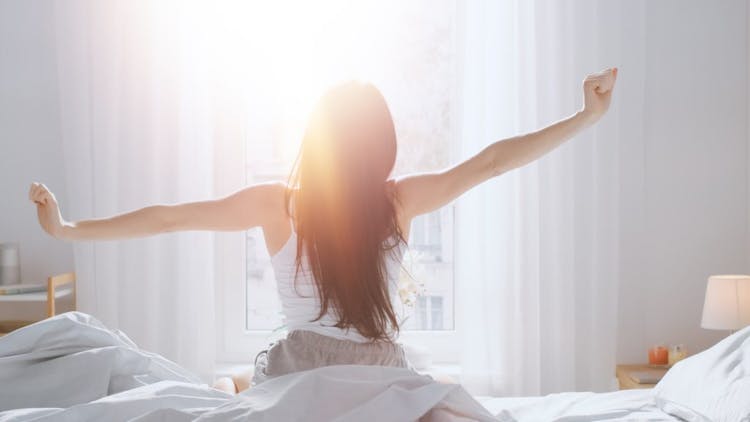
Both acupuncture and herbal medication can be effective in treating insomnia.
Acupuncture targeting, for example, the (
Chinese herbal treatments commonly include Sour Jujube Seed, which nourishes the liver and qi, calms the mind and helps with the management of physical symptoms brought about by stress.
The combination of acupuncture and herbal medicine, properly administered, can bring relief in just days, says Physician Tjai.
This was the case for Joyce* (not her real name), 76, who struggled with falling and staying asleep. As a result, she suffered from frequent headaches and a stiff neck during the day. She took sleeping pills to help her sleep.
Bearing in mind other symptoms, including headaches, irritability and a flushed appearance, Physician Tjai suspected that she had “liver fire” due to the stagnation of qi in the liver. She was advised to undergo four weeks of acupuncture and herbal treatments, and afterwards slept much better.
Although acupuncture can help, it is important to remember that it is not always suitable for those who are pregnant, weak, or afraid of needles, Physician Tjai says.
This is where massage on the acupuncture points (tui na) which affect sleep patterns may be a better option. However, he warns that in the case of women who are pregnant, some acupuncture points must be avoided.
For the other groups, cupping, which warms up the meridians and improves the circulation of both qi and blood, could also be considered, he says.
Can You Make Up For Lost Sleep?
If it’s an office emergency requiring just one all-nighter or a single bout of insomnia, then sleeping longer the next day should restore alertness.
But if sleep deprivation is persistent, studies suggest that your body’s ability to make up for you – no matter how much you sleep in – may be damaged.
Lack of Sleep Effects on Personal and Professional Life
Several large studies have linked sleep deficit to poor work performance, driving accidents, relationship problems, anger and depression.
“People just don’t realize how important sleep is,” says Carl Hunt, director of the National Center on Sleep Disorders Research at the National Institutes of Health in the US. “Sleep is just as important for overall health as diet and exercise.”
Tips For Getting Better Sleep At Night
You can improve your sleep by adopting a bedtime routine each night. This helps balance your circadian rhythm to control when you feel sleepy.
Try going to bed and waking up at the same time each day, even on weekends. It also helps to reduce your exposure to light at night, especially from electronics.
Here are some other tips to help you sleep better:
- Try an herbal sleep formula to calm the mind and improve REM sleep without harsh medications
- Exercise in the morning instead of late at night to keep cortisol levels down
- Eat your smallest meal of the day at night approximately three hours before bed to alleviate digestive problems while you sleep
- Avoid caffeine after 2 pm
- Limit nap time to 30 minutes maximum
Taking Lingzhi Cracked Spores Capsules Plus can also help you sleep better. It works by increasing sleep latency time through modulation of delta activity during non R.E.M sleep, resulting in a better night’s rest.
It is very important that those who suffer from insomnia to seek treatment, whether from a TCM physician or traditional western doctor, says Physician Tjai.
He adds that whether you have a sleep disorder or your sleeplessness is a symptom of another condition, seeking help can prevent it from developing into anything more serious.
References
- US National Library of Medicine. 2010. Sleep Duration as a Risk Factor for Cardiovascular Disease- a Review of the Recent Literature. [Accessed 27 January 2022]
- NHS. 2021. Why lack of sleep is bad for your health. [Accessed 27 January 2022]
- US National Library of Medicine. 2016. Trouble Sleeping Associated with Lower Work Performance and Greater Healthcare Costs: Longitudinal Data from Kansas State Employee Wellness Program. [Accessed 27 January 2022]
Share this article on



